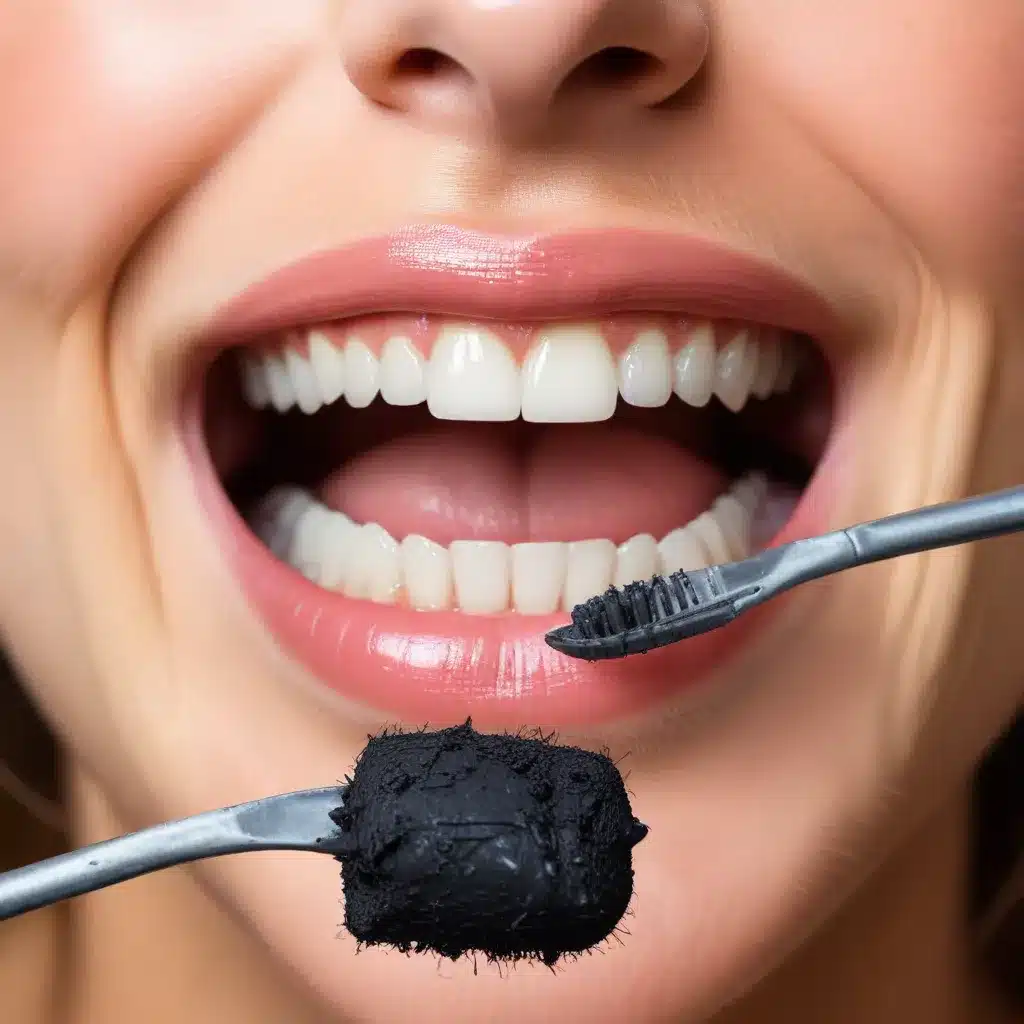
In the ever-evolving world of dental health, trends and fads come and go, with some gaining widespread popularity despite lacking scientific evidence. One such phenomenon is the use of charcoal in dental hygiene, which has seen a surge of interest in recent years. As a dental health expert at Station Road Dental Aldergrove, I aim to provide our patients with a comprehensive understanding of the facts and fiction surrounding the use of charcoal for oral care.
Charcoal’s Purported Benefits
Charcoal, often described as “nature’s toothbrush,” has been touted for its ability to whiten teeth, remove stains, and improve overall oral hygiene. Proponents of charcoal-based dental products claim that the porous nature of activated charcoal allows it to absorb and remove plaque, tartar, and stains from the teeth, leading to a brighter, healthier smile.
The Scientific Evidence
While the claims surrounding charcoal’s dental benefits may seem appealing, the scientific evidence on its effectiveness is limited and often inconclusive. A study published in the Journal of the American Dental Association found that charcoal-based toothpastes were no more effective in removing plaque or stains than regular toothpastes. In fact, some studies have raised concerns about the potential abrasiveness of charcoal, which could lead to the erosion of tooth enamel over time.
It’s important to note that the American Dental Association (ADA) has not yet approved any charcoal-based dental products, as the organization believes more research is needed to determine their safety and efficacy. The ADA’s stance is that the use of charcoal-containing products may not be recommended for everyday use, as their long-term effects on oral health remain unclear.
Potential Risks and Concerns
While the allure of a whiter, brighter smile may be tempting, the use of charcoal in dental hygiene is not without risks. As mentioned earlier, the abrasive nature of charcoal could potentially lead to the erosion of tooth enamel, which is the protective outer layer of the teeth. This erosion can increase sensitivity, make teeth more susceptible to cavities, and even expose the underlying dentin, which can appear yellower in color.
Furthermore, the pH balance of the mouth is crucial for maintaining oral health. Some charcoal-based products have been found to be highly acidic, which can disrupt the natural pH balance and potentially lead to gum irritation, sensitivity, and an increased risk of dental erosion.
Charcoal and Dental Emergencies
While charcoal has been touted as a solution for various dental issues, it is not a substitute for professional dental care. In the event of a dental emergency, such as a toothache, injury, or sudden pain, it is essential to seek immediate attention from a qualified dentist.
Attempting to manage dental emergencies with charcoal or other home remedies can be dangerous and may lead to further complications. For example, using charcoal to try and “pull out” a lodged object or relieve a toothache could result in more harm than good, potentially causing infection, nerve damage, or even the need for endodontic treatment (root canal) or tooth extraction.
Incorporating Charcoal Responsibly
Despite the lack of conclusive evidence on the long-term benefits of charcoal for dental health, some individuals may choose to incorporate it into their oral hygiene routine. However, it is crucial to do so with caution and under the guidance of a dental professional.
If you are considering using charcoal-based dental products, it is recommended to start with a small amount and closely monitor your teeth and gums for any adverse reactions, such as sensitivity or irritation. It is also essential to maintain your regular professional dental cleanings and check-ups to ensure that the use of charcoal does not compromise your overall oral health.
Prioritizing Proven Oral Hygiene Practices
While the allure of charcoal may be tempting, the dental community advises focusing on well-established and scientifically-backed oral hygiene practices. These include:
- Brushing your teeth twice daily with a fluoride-containing toothpaste.
- Flossing daily to remove plaque and food debris from between the teeth.
- Regularly visiting your dentist for professional cleanings and check-ups.
- Maintaining a balanced, tooth-friendly diet that limits sugary and acidic foods and beverages.
- Considering fluoride treatments or sealants as recommended by your dentist to protect against cavities.
By prioritizing these proven practices, you can help ensure the long-term health and wellness of your teeth and gums, without risking the potential downsides of charcoal-based products.
Conclusion
In the pursuit of a brighter, healthier smile, it’s essential to separate fact from fiction when it comes to dental hygiene trends like charcoal. While the allure of “natural” solutions may be tempting, the scientific evidence on the long-term benefits and safety of charcoal for oral health remains inconclusive.
As a dental health expert at Station Road Dental Aldergrove, I encourage our patients to maintain a balanced and evidence-based approach to their oral care. By focusing on well-established practices, such as regular brushing, flossing, and professional cleanings, you can achieve and maintain a healthy, beautiful smile without exposing your teeth and gums to the potential risks associated with unproven remedies.
Remember, your oral health is a lifelong journey, and the team at Station Road Dental Aldergrove is here to guide you every step of the way. If you have any questions or concerns about your dental hygiene routine, please don’t hesitate to schedule an appointment with us. Together, we can develop a personalized plan to keep your smile healthy and radiant for years to come.

